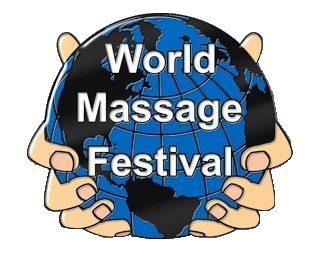 |
World Massage Festival & Massage Therapy Hall of Fame July 17-21, 2022 Harrah's Cherokee Casino Resort Cherokee, NC to educate the general public about massage, to educate therapists about different types of massage and to have fun. |
||||||||
I have been teaching and practicing a wide range of complementary therapies, which include Aromatherapy, Reflexology, Massage, Chinese Medicine and Reiki among others, since July 1999. I teach a wide range of my courses in my own school in Ireland and internationally in Malta, Spain, USA, China and Taiwan. I love all aspects of my work, writing, teaching, researching, massaging and yes even admin. But the aspect that most inspires me is when I see a student or client make the connection between how we think and how we are. It is an honour to be part of the personal growth that comes about when they see for themselves the power of the body, mind, spirit connection. Website: OBUS School of Healing Therapies Oncology Massage Training 16 CE Hours When training in their entry level massage course most (if not all) massage therapists where taught that massage would move cancer cells around the body or massage for anyone with cancer was completely contraindicated.
This is not true and this course is designed to give you confidence to know what massage is appropriate and when. Nearly all cancer treatments leave some imprint in the body and massage therapists need to know how to adjust for that lingering imprint so massage can be safely, effectively and enjoyably offered to EVERY PERSON who has received treatment for cancer. This "massage for cancer care" course is for qualified massage therapists. It teaches you how to adapt and modify your standard massage sequence for people who have cancer or have a history of cancer. You will learn - Theory:
Positioning - Correct positioning and bolstering is vital to help client release tension from held muscles which brings relaxation into the body. Also medical devices need to be accommodated. Pressure - Knowing what pressure to use is vital to safe massage. Duration - All bodywork following treatment needs to be undemanding on the body. Learning how to give an effective massage in shorter times is important. As the clients' energy returns duration can be lengthened. Lymphatic drainage massage and lymphedema: A thorough knowledge of how the lymphatic system works and how to adapt massage when working with clients who have lymph nodes removed, examined or radiated. Knowing how chemotherapy affects the lymph vessels is vital to giving a safe and effective massage. Skin integrity: There can be lifelong changes to the skin following some cancer treatments and the massage therapist needs to know how to adapt. Types of massage and touch therapy: You will learn how to work with clients in various settings such as hospital, day care, home and in your clinic. Contraindications: There are some (but few) conditions that contraindicate massage and you learn clear and definite direction regarding when it is contraindicated to massage. Cautions and adaptations: There are lots of situations where you need to be cautious and this course will give you the knowledge and confidence to know the difference between caution, adaptation and contraindication. Intake forms: We will discuss what questions you need to ask any client who is currently receiving treatment to ensure the best possible outcome from the massage. You will also receive suggested questions to ask on your standard intake form for clients who are cancer free for a number of years but may still need some adaptation to ensure you always have as much information as you need to give the best treatment. Follow-up: Therapists will learn the importance of following up on how the client felt following the massage. This helps you adapt the next massage to increase the benefits and eliminate any side effects. Emotional aspects of touch: Students often receive new understanding of what family and friends experienced while being treated for cancer. The also realize (or re-remember) just how powerful touch can be and this can have a profound effect on them during the course and afterwards. Practical sessions: You will learn how to adapt and alter your massage and many massage techniques will be covered including:
It is important that the therapist knows how to take care of themselves when working with clients who may have a difficult history of illness. We will focus on methods to help you stay centred during your work, let go when finished and how to do productive reflective practice. Back up from OBUS School of Healing Therapies: Following the course you will be invited to join a closed group on Facebook. This is to give you a forum to discuss cases (without names), ask questions and build confidence. It will only be open to people who have attended training in OBUS which gives you the freedom to ask whatever you like. Course structure: The course will contain a mixture of theory and practical work. Supplies needed for class:
| | ||||||||
